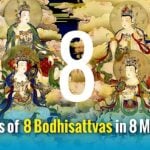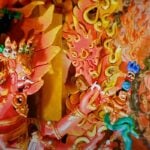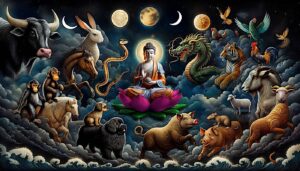In Buddhas Words: “Be… Refuges Unto Yourself Seeking No External Refuge…”
In the second of our “quotable quotes” — verified quotes with citations to Sutra — we began by exploring a very popular online web quote attributed to Buddha — but fake and misleading. Although the gist of the “fake” quote — or badly translated quote — may seem similar it is incorrect enough to be misleading. The “fake” quote is:
Incorrect: “Work out your own salvation. Do not depend on others.” — quoted from “all over the web”
Correct: “…Dhamma as Your Refuge”
The actual (or better translated) quote is:
“Be islands unto yourselves, refuges unto yourselves, seeking no external refuge; with the Dhamma as your island, the Dhamma as your refuge, seeking no other refuge.”

Even then, the entire context of the teaching is vital. Buddha was delivering his final teaching, prior to his paranirvana. He was passing from this life and giving his final advice to his students. Even the corrected translation should be read in context with the entire teaching, at a minimum from verse 27 to 35, and notably versuses 33 and 34 together:
From the Maha-parinibanna Suta: The Last Days of the Buddha
Translated from the Pali to English here by Sister Vajira and Francis Story
27. At that time the Blessed One spoke to the bhikkhus, saying: “Go now, bhikkhus, and seek shelter anywhere in the neighborhood of Vesali where you are welcome, among acquaintances and friends, and there spend the rainy season. As for me, I shall spend the rainy season in this very place, in the village of Beluva.”
“So be it, O Lord,” the bhikkhus said.
28. But when the Blessed One had entered upon the rainy season, there arose in him a severe illness, and sharp and deadly pains came upon him. And the Blessed One endured them mindfully, clearly comprehending and unperturbed.
29. Then it occurred to the Blessed One: “It would not be fitting if I came to my final passing away without addressing those who attended on me, without taking leave of the community of bhikkhus. Then let me suppress this illness by strength of will, resolve to maintain the life process, and live on.”
30. And the Blessed One suppressed the illness by strength of will, resolved to maintain the life process, and lived on. So it came about that the Blessed One’s illness was allayed.
31. And the Blessed One recovered from that illness; and soon after his recovery he came out from his dwelling place and sat down in the shade of the building, on a seat prepared for him. Then the Venerable Ananda approached the Blessed One, respectfully greeted him, and sitting down at one side, he spoke to the Blessed One, saying: “Fortunate it is for me, O Lord, to see the Blessed One at ease again! Fortunate it is for me, O Lord, to see the Blessed One recovered! For truly, Lord, when I saw the Blessed One’s sickness it was as though my own body became weak as a creeper, everything around became dim to me, and my senses failed me. Yet, Lord, I still had some little comfort in the thought that the Blessed One would not come to his final passing away until he had given some last instructions respecting the community of bhikkhus.”
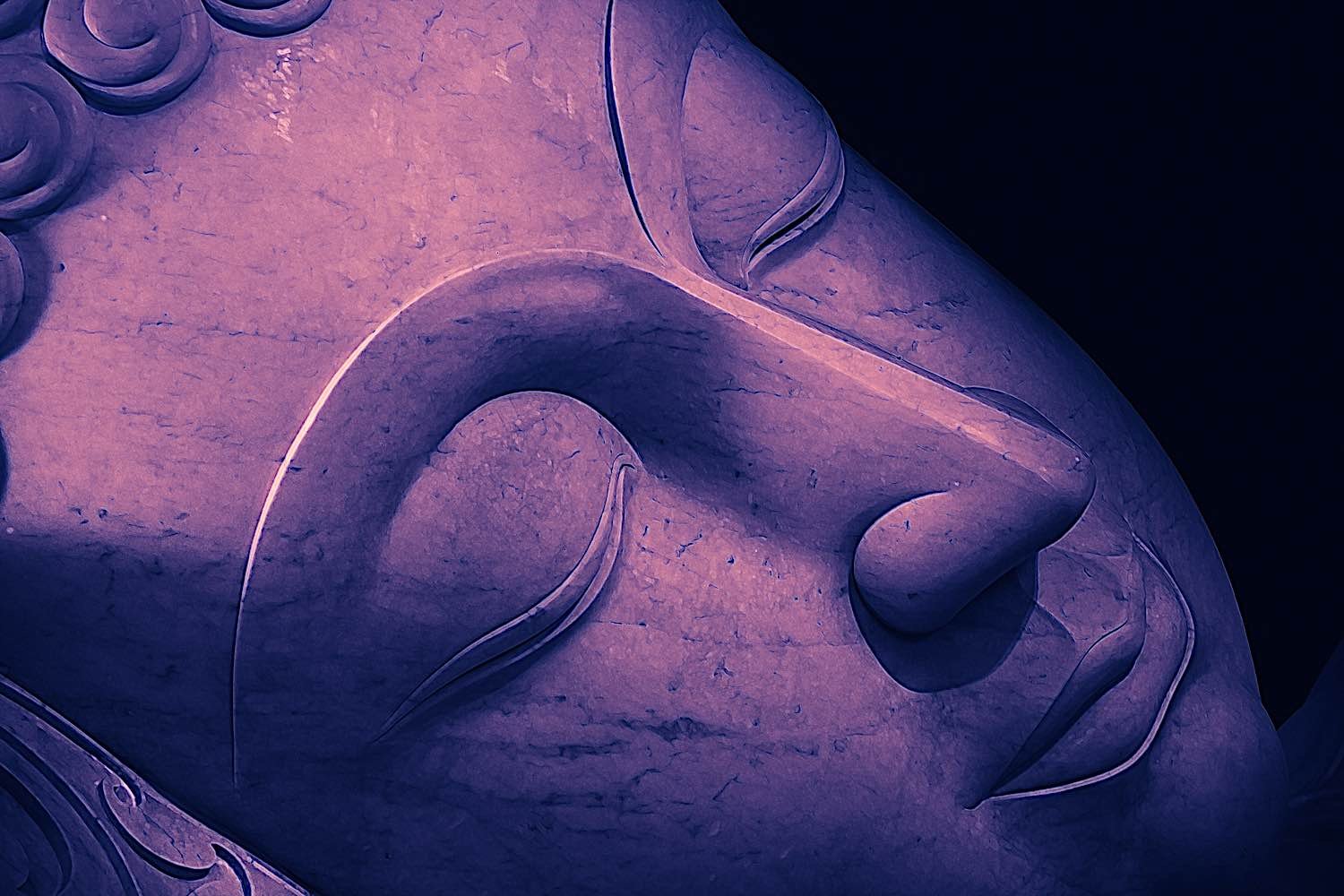
32. Thus spoke the Venerable Ananda, but the Blessed One answered him, saying: “What more does the community of bhikkhus expect from me, Ananda? I have set forth the Dhamma without making any distinction of esoteric and exoteric doctrine; there is nothing, Ananda, with regard to the teachings that the Tathagata holds to the last with the closed fist of a teacher who keeps some things back. Whosoever may think that it is he who should lead the community of bhikkhus, or that the community depends upon him, it is such a one that would have to give last instructions respecting them. But, Ananda, the Tathagata has no such idea as that it is he who should lead the community of bhikkhus, or that the community depends upon him. So what instructions should he have to give respecting the community of bhikkhus?
“Now I am frail, Ananda, old, aged, far gone in years. This is my eightieth year, and my life is spent. Even as an old cart, Ananda, is held together with much difficulty, so the body of the Tathagata is kept going only with supports. It is, Ananda, only when the Tathagata, disregarding external objects, with the cessation of certain feelings, attains to and abides in the signless concentration of mind, that his body is more comfortable.
33. “Therefore, Ananda, be islands unto yourselves, refuges unto yourselves, seeking no external refuge; with the Dhamma as your island, the Dhamma as your refuge, seeking no other refuge.
“And how, Ananda, is a bhikkhu an island unto himself, a refuge unto himself, seeking no external refuge; with the Dhamma as his island, the Dhamma as his refuge, seeking no other refuge?
34. “When he dwells contemplating the body in the body, earnestly, clearly comprehending, and mindfully, after having overcome desire and sorrow in regard to the world; when he dwells contemplating feelings in feelings, the mind in the mind, and mental objects in mental objects, earnestly, clearly comprehending, and mindfully, after having overcome desire and sorrow in regard to the world, then, truly, he is an island unto himself, a refuge unto himself, seeking no external refuge; having the Dhamma as his island, the Dhamma as his refuge, seeking no other refuge.
35. “Those bhikkhus of mine, Ananda, who now or after I am gone, abide as an island unto themselves, as a refuge unto themselves, seeking no other refuge; having the Dhamma as their island and refuge, seeking no other refuge: it is they who will become the highest, if they have the desire to learn.”
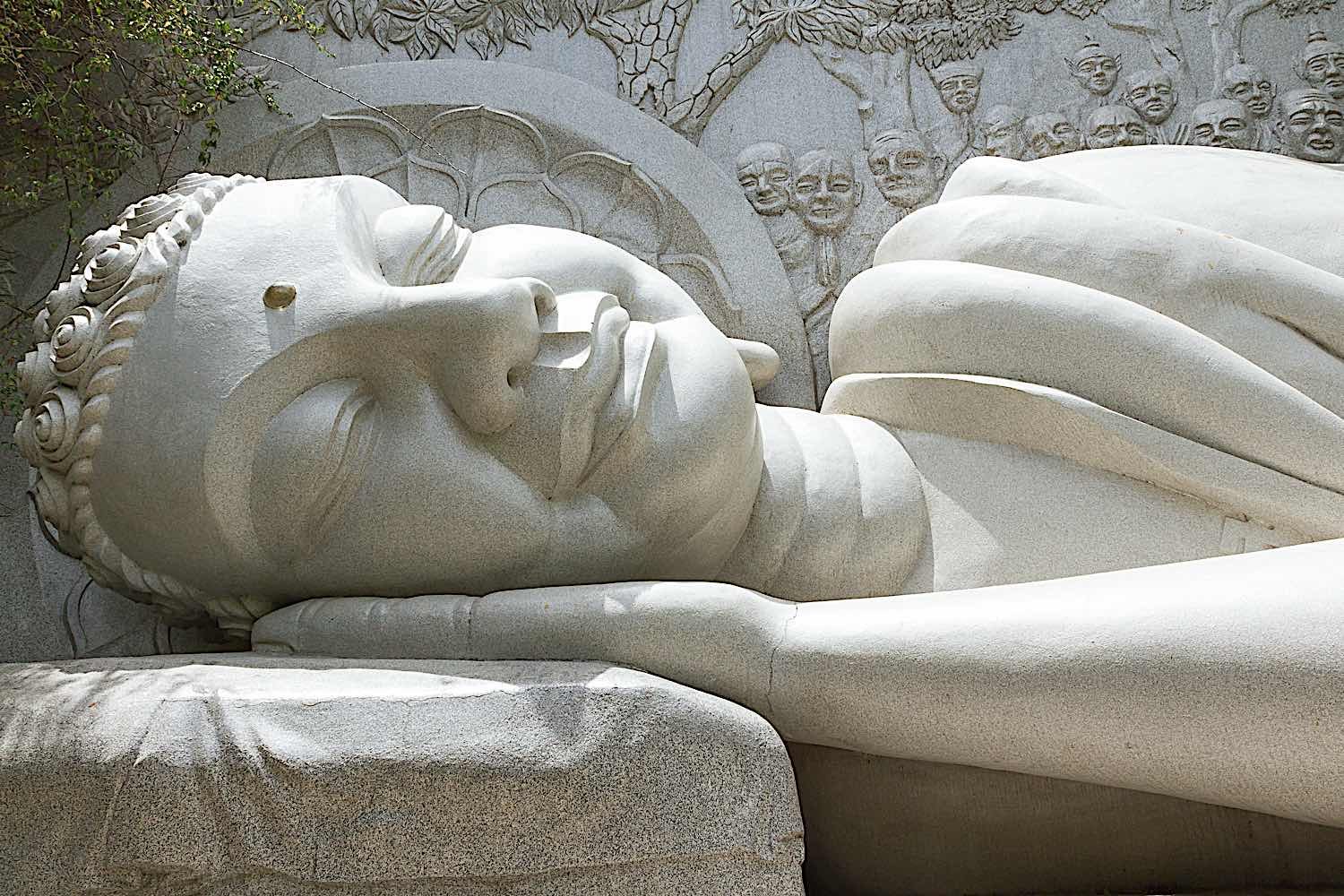
“Maha-parinibbana Sutta: Last Days of the Buddha” (DN 16), translated from the Pali by Sister Vajira & Francis Story. Access to Insight (BCBS Edition), 30 November 2013, http://www.accesstoinsight.org/tipitaka/dn/dn.16.1-6.vaji.html .
More articles by this author
Search
Latest Features
Please support the "Spread the Dharma" mission as one of our heroic Dharma Supporting Members, or with a one-time donation.
Please Help Support the “Spread the Dharma” Mission!

Be a part of the noble mission as a supporting member or a patron, or a volunteer contributor of content.
The power of Dharma to help sentient beings, in part, lies in ensuring access to Buddha’s precious Dharma — the mission of Buddha Weekly. We can’t do it without you!
A non-profit association since 2007, Buddha Weekly published many feature articles, videos, and, podcasts. Please consider supporting the mission to preserve and “Spread the Dharma." Your support as either a patron or a supporting member helps defray the high costs of producing quality Dharma content. Thank you! Learn more here, or become one of our super karma heroes on Patreon.
Lee Kane
Author | Buddha Weekly
Lee Kane is the editor of Buddha Weekly, since 2007. His main focuses as a writer are mindfulness techniques, meditation, Dharma and Sutra commentaries, Buddhist practices, international perspectives and traditions, Vajrayana, Mahayana, Zen. He also covers various events.
Lee also contributes as a writer to various other online magazines and blogs.





